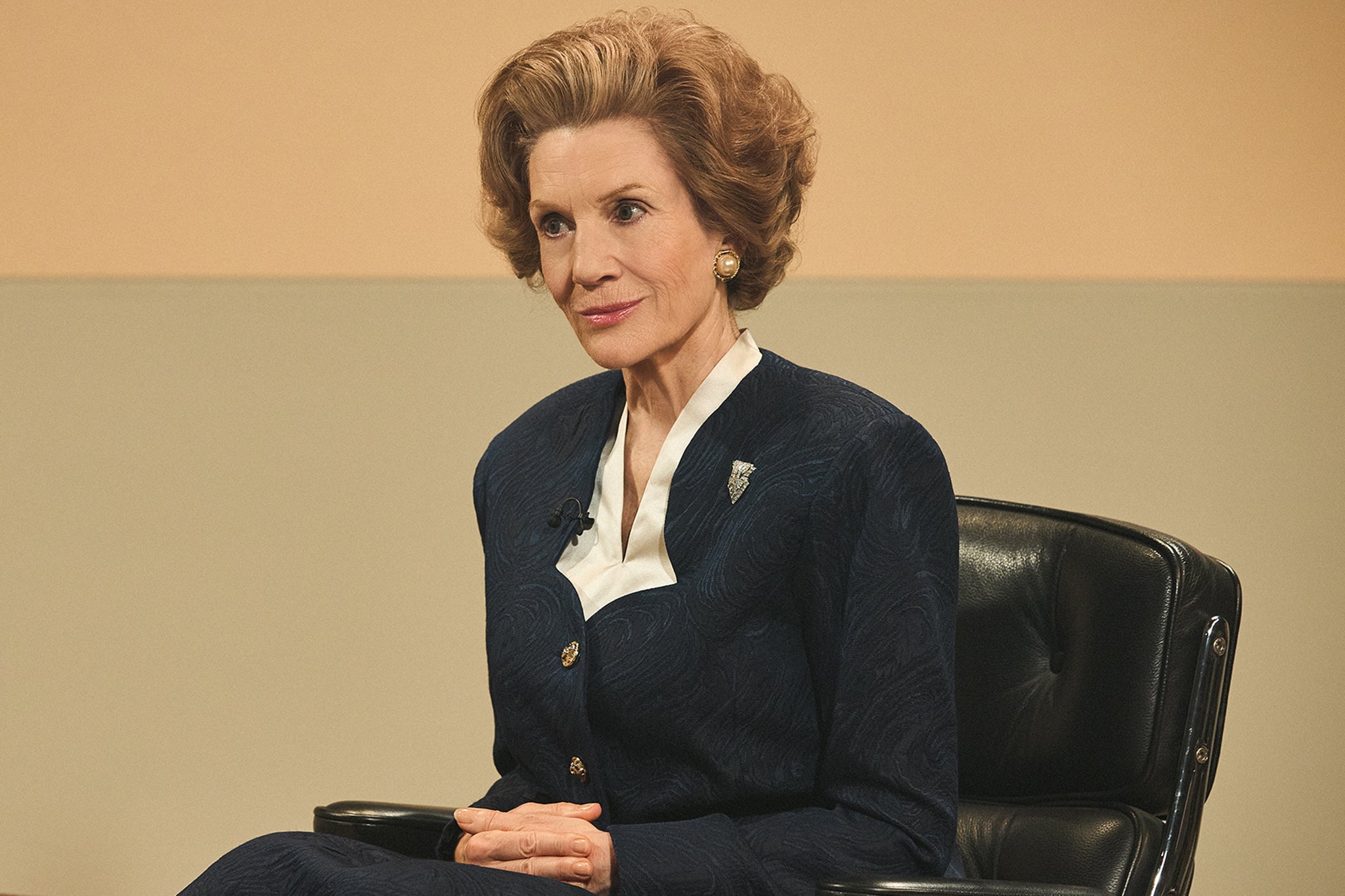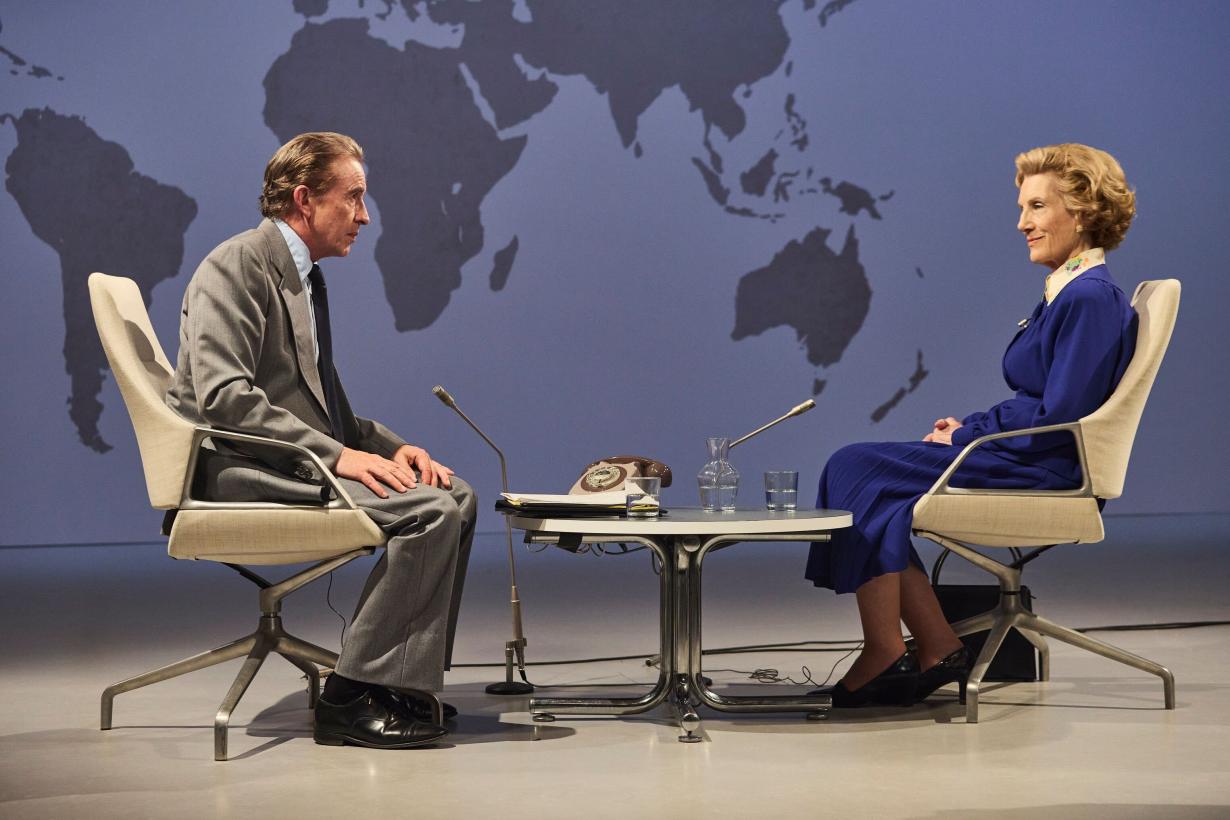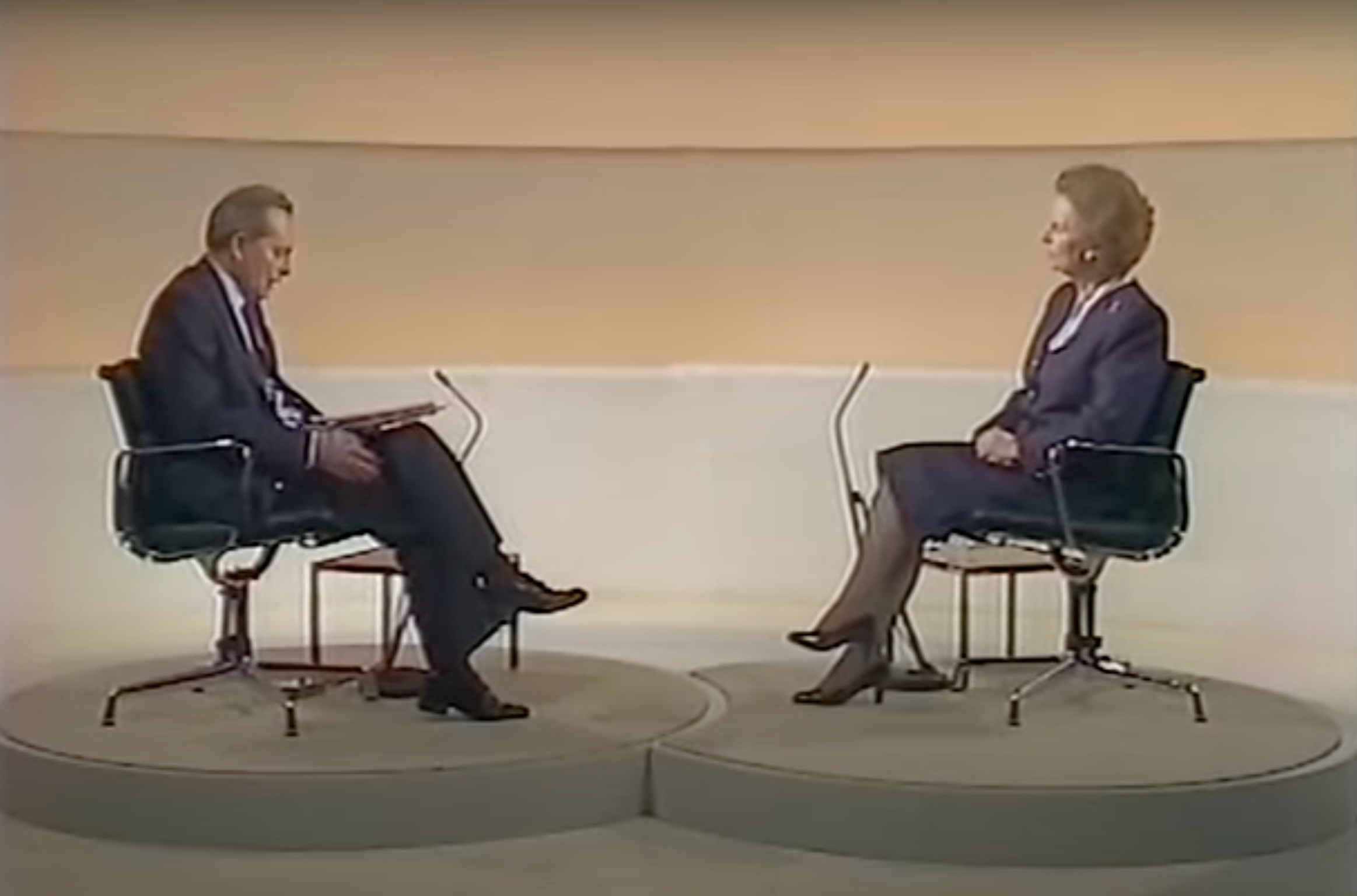Margaret Thatcher rarely flinched in the face of scrutiny. But one interview, aired on 29 October 1989, proved to be a turning point in her premiership. Conducted by Brian Walden, the former MP turned feared political interviewer, the grilling exposed the Iron Lady’s vulnerabilities and is now widely seen as a moment that hastened her downfall.
That fateful encounter is the focus of Brian and Maggie, a new Channel 4 docudrama starring Harriet Walter (Succession) as Thatcher and Steve Coogan as Walden. Written by Olivier Award-winning playwright James Graham (Sherwood, Quiz, Brexit: The Uncivil War) and directed by Stephen Frears (The Queen, Philomena), the drama revisits the intensity of the interview that saw a rarely flustered Thatcher visibly agitated.
The docudrama draws from a chapter in Rob Burley’s 2023 book Why is This Lying Bastard Lying To Me? and delves into both the professional dynamic and the unexpected personal connection between Thatcher and Walden.
Brian Walden’s rise to prominence was unusual. Born in West Bromwich in 1932, he served as the Labour MP for Birmingham Ladywood from 1964 until 1977, when he resigned to pursue a career in journalism. By the 1980s, he was a household name in political journalism, hosting Weekend World and later launching his own programme, The Walden Interview.

Despite their differing political allegiances, Thatcher and Walden had a mutual respect that developed into a surprising friendship. Walden once likened Thatcher to his mother and described her as “the master spirit of our age.” During her 1983 general election campaign, he even penned a speech for her, coining the term “Victorian values” – a phrase she famously adopted.
By 1989, Thatcher was under pressure. Her chancellor, Nigel Lawson, had resigned just three days before the interview, citing her refusal to sack her economics adviser, Sir Alan Walters. Although the interview had been scheduled months earlier, it became dominated by Lawson’s resignation and the chaos within her government.
Broadcast to an audience of three million, the interview was a relentless cross-examination of Thatcher’s authority and decision-making. Walden pressed her repeatedly on Lawson’s departure, asking: “Do you deny that Nigel would have stayed if you had sacked Professor Alan Walters?” A visibly uncomfortable Thatcher could only reply, “I don’t know.”
After admitting, “I did everything possible to stop him [from resigning],” Walden called her response “a terrible admission.” Increasingly flustered, Thatcher snapped, “I’m not going on with this.”

The exchange led political biographer John Campbell to call it “the killer question” in his 2003 book on Thatcher. Later, when Walden asked whether she was seen as “authoritarian” or “domineering,” Thatcher accused him of being exactly that, describing his questioning style as “domineering.”
Matthew Parris, who succeeded Walden as the host of Weekend World, reflected on the interview in The Times: “How had she missed his ability to sting? He had, after all, coaxed her into attaching herself to the phrase ‘Victorian values.’ Thatcher was no Victorian. She was a modern woman of the 1950s, a science graduate who had married a divorcee and sacrificed her kids to her career.”
The interview, which became Thatcher’s final televised appearance, marked a shift in public and political opinion of her leadership. Just over a year later, amid mounting challenges to her authority, Thatcher resigned as prime minister. She stepped down on 22 November 1990, delivering a defiant final speech to the House of Commons in which she quipped, “I’m enjoying this.”
Her premiership lasted 11 years and six months, making her the UK’s longest-serving prime minister of the 20th century. She was succeeded by John Major.

Thatcher and Walden never spoke again after the interview.
Walden, who passed away in 2019 at his home in Guernsey, remains a revered figure in British political journalism. During his career, he redefined the political interview style alongside contemporaries like Robin Day. Paying tribute to him, Andrew Neil wrote: “Always wise and witty. A wonderful interrogator of politicians, especially on Weekend World. With Robin Day, he invented the British political interview style. Emulated but not matched to this day.”
Brian and Maggie not only revisits the drama of the interview itself but also explores the dynamics between two formidable figures who, for a time, walked the fine line between professional respect and personal rapport. Harriet Walter and Steve Coogan lead the cast with performances that promise to capture both the gravity and the humanity of the moment.
The docudrama is also a study in the fragility of power. “Thatcher was at the peak of her dominance, yet it was here that cracks began to show,” Graham said of the project. “It’s a story about how even the strongest leaders can be undone.”
Brian and Maggie airs on Channel 4 on Wednesday and Thursday at 9pm







